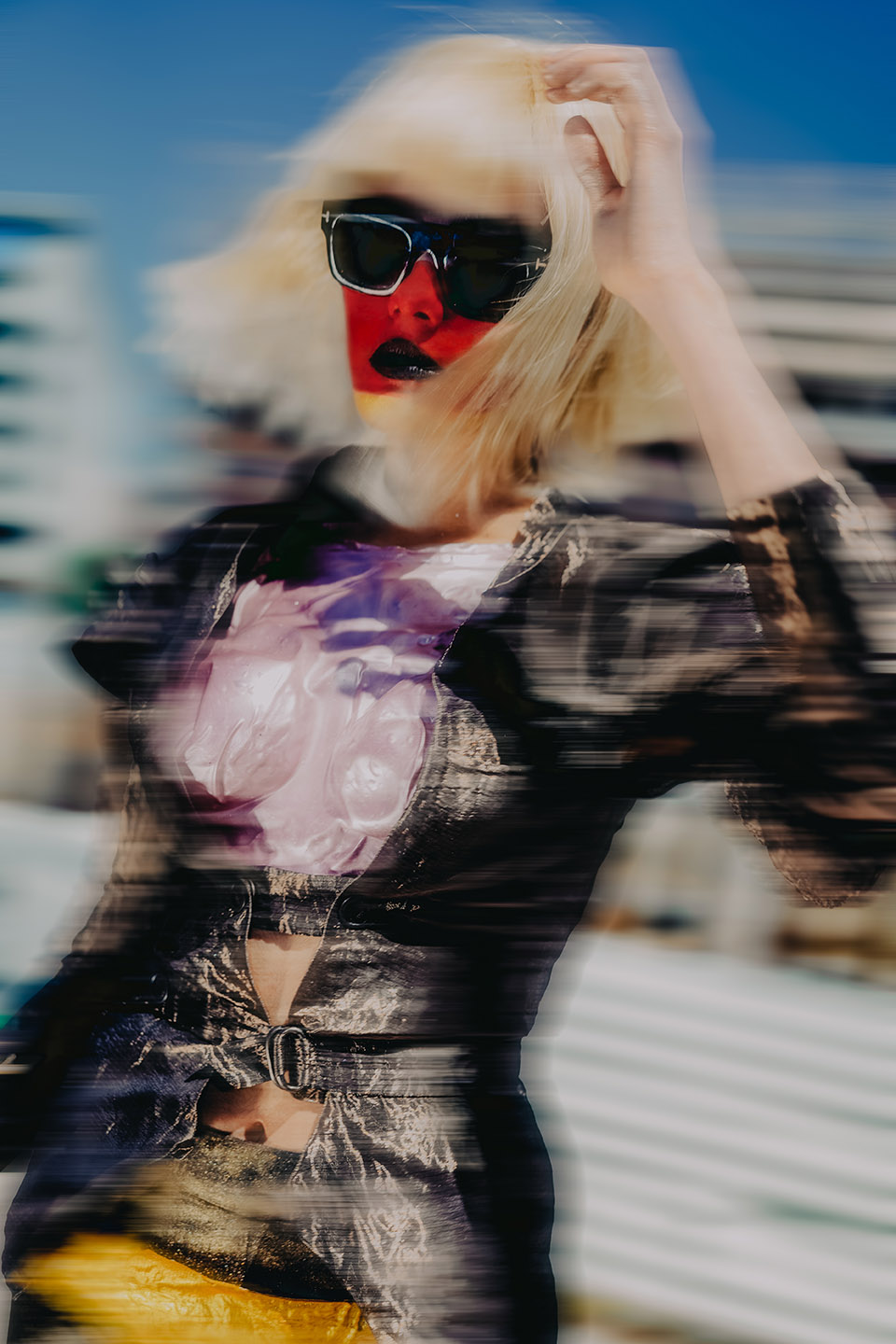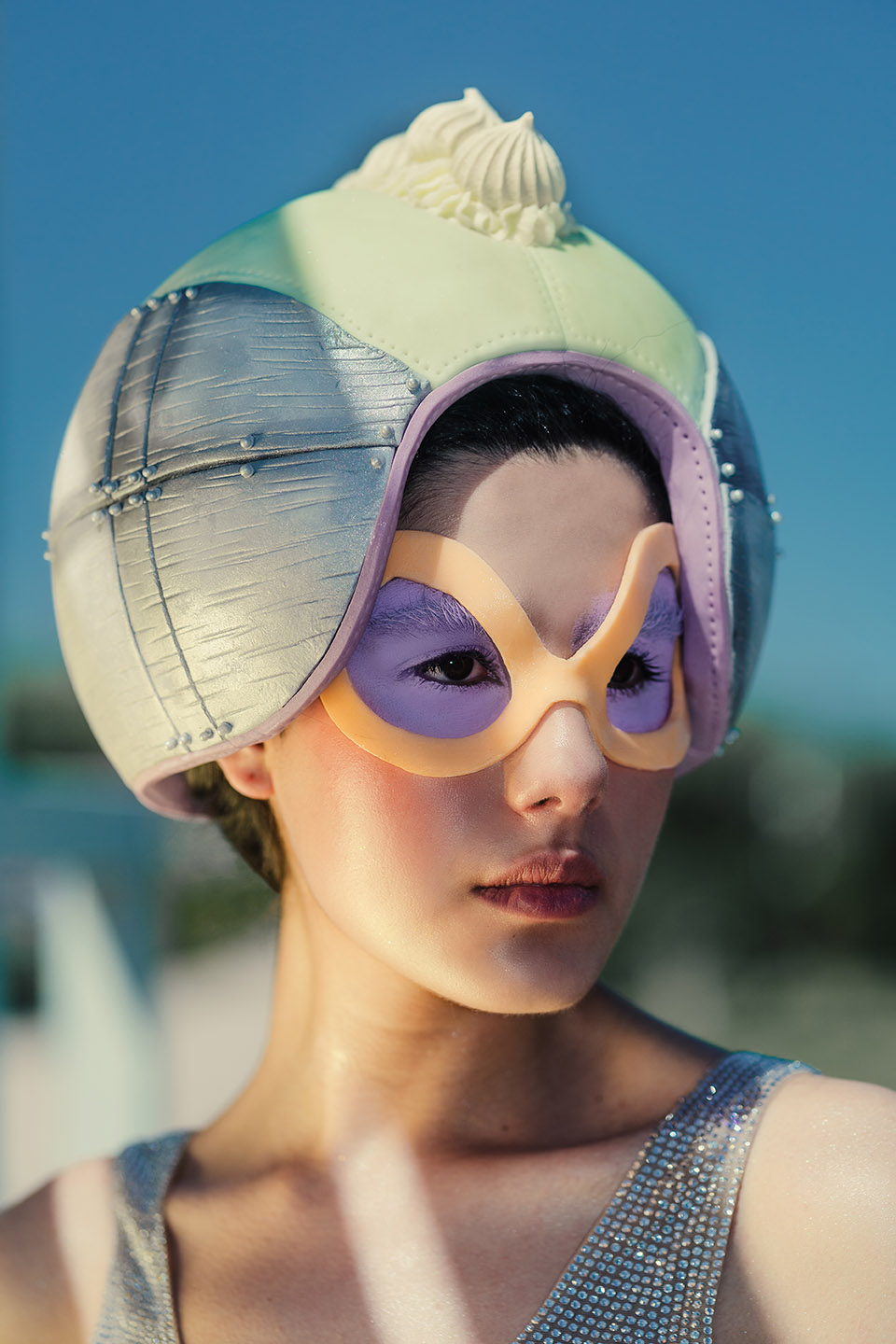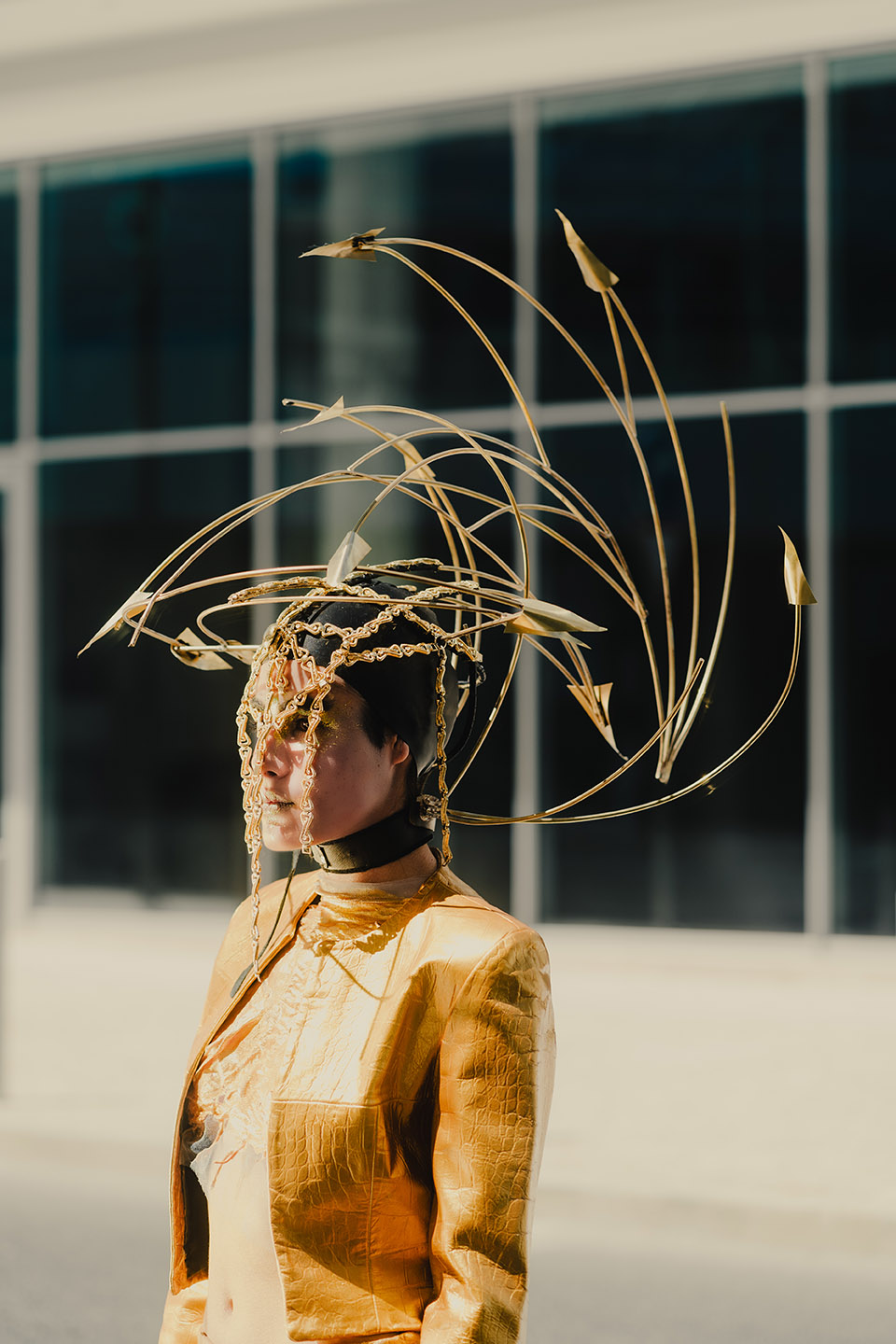
In collaboration with sugar designer and pastry chef Filipe Blanquet, and featuring gelatinous creations by Antonia Rosa, ZOOT brings you our latest editorial infused with bionic confections to whet your appetite. Traveling back to the future, we show how fashion can be found in any art form.
Creative Direction by ZOOT beauty editor Antonia Rosa using Maqpro
Assisted by Frederico Simaõ and Joana Lopes
Featured artist sugar designer Filipe Blanquet
Photography by Joana Linda
Assisted by Manuel Dordio
Hair by Paulo Vieira using JOICO
Styling by Márcia Marques assisted by Soraya Duarte at ETIC / MODA ETIC
Production by Michele Lumiere
Make-up team Catarina Duarte • Catarina Mata • Micael Cardoso • Elisabeth Ibbett • Vitoria Raminhos
Models Diana Perdigão at L´Agence Lisboa and Margarida Cunha at Karacter Agency
Videographer Daniella Rodrigues
Interviews by Laura Farrajota
Special thanks to Valentim Quaresma, Helena Vaz Pereira and to our editor Michaela Doyle.
The editorial is a delicious revelation: many of the garments, modeled on Space Age visions from the imaginations of the past, are made from various confectionery materials such as pastillage and fondant. This unexpected choice blurs the lines between culinary artistry and couture, pushing the boundaries of what fashion can do.
ZOOT creative director Antonia Rosa envisioned the universe for the photoshoot as a melding of retrofuturism through the decades. With inspiration drawn from the 1927 film Metropolis, sci-fi from the 1940s and Flash Gordon in its various comic and cinematic iterations, mixed with the neo-noir vibe of Sin City and the mood of Helmut Newton’s provocative photography, Antonia invited Filipe to add a saccharine twist.
Originally trained in architectural design, Filipe turned his attention to the kitchen, first studying to be a chef and then discovering his true passion for pastry. Finding he could stretch the limits of his creativity and use his design skills from his architecture days, Filipe devoted his career to sugar design and began developing innovative edible embellishments. It was in his attempt to create a movable sculpture that turned him toward the possibilities of fashion. Since then, Filipe has continued to produce edible collections, creating a marriage between fashion and pastry. For many it is madness, but for Filipe it’s perfection.
I got invited by Antonia to this production and she had already defined the visual universe that would be the context of this fashion editorial. Curiously, it is an aesthetic that has always attracted me: the futurism of the 1940s, with a modern twist and with something unique and never before explored in this context: the inclusion of pastry in fashion — my specialty!
– Filipe Blanquet
Working with Antonia and her vision for the editorial, Filipe incorporated references to legendary designers who also found inspiration in dreams of the future and stories from the past. In the futuristic miniskirt constructed of pastillage links, we see a nod to Paco Rabanne, a designer famous for his use of unconventional materials and “Space Age” fashion innovations from the 1960s—and who, like Felipe, was formally trained in architecture before becoming a designer. And with the armoured bustier complete with cupcake-topped cones, we can’t help but call to mind Madonna’s iconic conical bustier by Jean Paul Gautier, who had no formal training when he started designing but found an enduring talent for reimagining fashion touchstones.
In keeping with the shift toward sustainable fashion, stylist Márcia Marques chose locally sourced and hand-crafted pieces to accessorize the edible creations. The metallic dresses from Fátima Lopes, painted leggings from Filipe Faisca and the shiny vinyl of Pedro Trocades’ bodysuit play at the blurred lines between technology and humanity. Valentim Quaresma’s mythical headpiece, bracelets and anklets recall the angular glitz of the women in the Flash Gordon universe. In fact, it was all captured outside Valentim’s atelier in Braço de Prata, which served as a sleek, modern backdrop for photographer Joana Linda.
Finally, Antonia’s shimmering bustiers, panties and belts hand-crafted out of gelatin added an otherworldly aesthetic. Not only captivating the eye, they helped illustrate a future filled with bionic life forms, where man merges with machine and fashion permeates every aspect of existence.
To put the icing on the proverbial cake, the sartorial confections could be the future of sustainable fashion: once you’re done wearing it, you can have it for dessert!
The sugar pieces, before being stabilized, must dry very well. After drying, they are put together in the correct order, like a puzzle, and are glued with edible glue or royal icing.
– Filipe Blanquet

On the armoured cupcake bustier…
This outfit was inspired by the famous Madonna conical-bra corset by Jean Paul Gaultier from the ’90s. I made it out of pastillage pieces, a technique used in sugar sculptures, and meringues in royal icing which is used in decorating cakes. It is covered with an edible metallic paint. On top of the breasts, I included chocolate and red velvet cakes as a highlight.
– Filipe Blanquet

Filipe called me with the idea of making clothes out of pastry for a ZOOT editorial. I put his ideas together in my universe that includes Madonna, Jean Paul Gaultier and Helmut Newton – and my universe of film noir comics and the iconic film Metropolis by Fritz Lang. We reproduced with some added creativity the iconic bustiers that Madonna used for shows.
– Antonia Rosa

The bases of the pieces I created are mostly made of fabric or wire, in order to support the weight and consistency of what will cover them: sugar pieces or cake. Regarding the sugar pieces, there are 3 techniques used: pastillage decor, royal icing and working with sugar paste (used to cover cakes in cake design). The ingredients for carrying out these three techniques are: sugar, cornstarch, water, gelatin and lemon juice. Subsequently, the pieces are colored with food dyes.
– Filipe Blanquet

The materials we wanted to use in this editorial couldn’t be plain and simple. We needed shine, metallic, modern and very futuristic, so we have fabric like vinyl and lots of metallic finish pieces to achieve the robotic look that we wanted.
– Márcia Marques


On the saccharine space helmet…
The helmet is made up of pastillage pieces, a technique used in sugar sculptures, and it includes an hidden lemon curd cake, only the meringues are visible. The rest of the helmet is covered with sugar fondant.
– Filipe Blanquet


For me, the creative process was very fluid. However, the great obstacle in the realization of these pieces is the drying time of the same. I would say that my biggest challenge here was time management: moving forward as quickly as possible, respecting the drying time of the materials.
– Filipe Blanquet

On the two-tone makeup inspiration …
Metropolis is a black and white film: I wanted to give it color!
– Antonia Rosa

My favorite part is being able to flow and innovate during the shooting, that is: having an original idea but being able to evolve it on the ground.
– Antonia Rosa


We have so many talented designers with impressive work. I’ve been outside of my home country for many years and I never had the chance to work with Portuguese designers before. For this production we were looking for edgy and futuristic looks and these designers have pieces that really match the mood.
– Márcia Marques


In addition to the almond paste, cake molds and sugar used by Filipe, I used my own kitchen to create skirts, panties and bustiers in gelatin to enrich the idea of a second bionic skin. The desired colour I achieved by mixing in organic pigments. Some pieces I finished before the shoot and cut them on location to fit the models bodies; others I prepared and finalized directly on the set.
– Antonia Rosa


On the the Paco Rabanne-inspired skirt and the Flash Gordon helmet …
This skirt is all made up of pastillage pieces, a technique used in sugar sculptures, covered with an edible metallic paint. The helmet is covered with sugar fondant.
– Filipe Blanquet


Filipe is an extraordinary person who perfectly masters the textures of his pastry art. I loved his ideas. We have many universes in common, so the synergy naturally exists between us.
– Antonia Rosa
FILM by fashion videographer Daniella Rodrigues.
REFERENCES
ANTONIA ROSA @iamwhatiam
FÁTIMA LOPES @fatimalopes.official
FILIPE BLANQUET @filipeblanquet
FILIPE FAISCA @atelierfilipefaisca
STIVALI @stivali_lisboa
for
ALEXANDER MCQUEEN @alexandermcqueen
GUISEPPE DE MORABITO @giuseppedemorabito_official
JW ANDERSON @jw_anderson
TROCADES @ptrocades
VALENTIM QUARESMA @valentimquaresma
[divider style=”solid” top=”20″ bottom=”20″]
Edited by Michaela Doyle.
To boot…
Check out Valentim Quaresma’s AW 23/24 collection in our ModaLisboa backstage portraits.
View more of Filipe Faisca’s work in our editorial colab shoot with Filipe.
Discover more from Pedro Trocades at our editorial colab with him.
Visit our backstage reportage from Fátima Lopes’ 30-year celebration fashion show.





